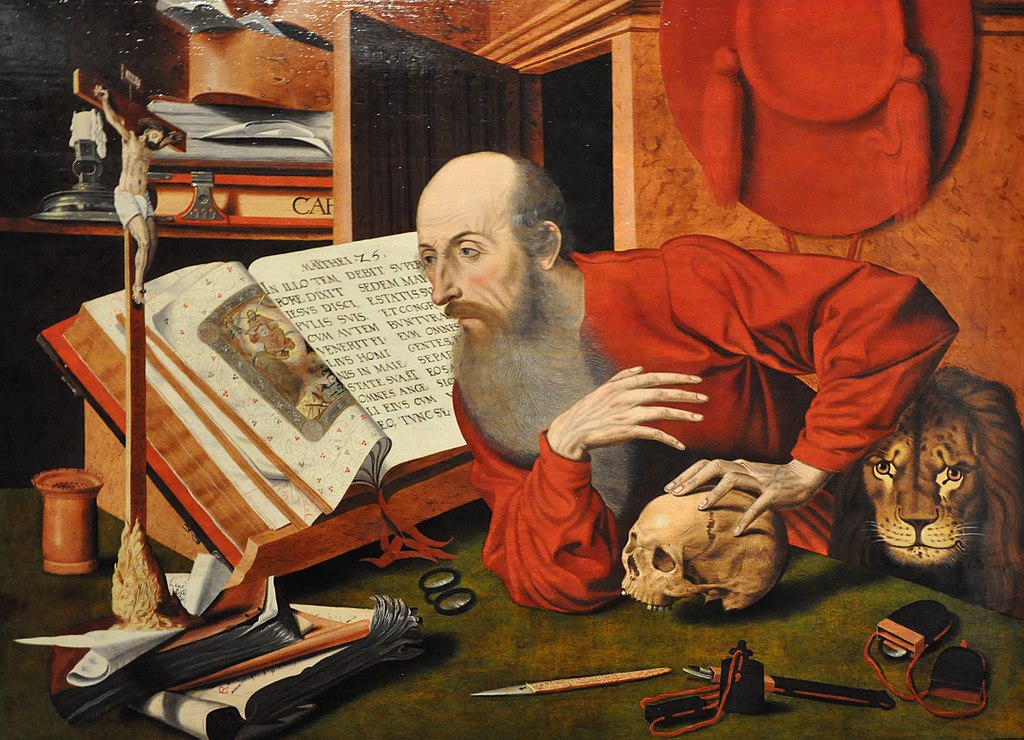Aurelio Porfiri
We as Catholics know well that there are two sources of Revelation: Sacred Scripture and Tradition. The imbalance on one or the other is what causes problems, real heresies. When Sacred Scripture is raised to the detriment of Tradition, here we have Lutheranism, which also had a certain influence on modernism at the beginning of the last century and through various streams, until today.
The historical-critical method applied with the intent of demolition on Scripture has practically made a clean sweep of all traditional exegesis, from Genesis to the Synoptics to the Gospel of John. Nothing is left standing, it would be enough for you to read The fabricated Paul by Hermann Detering to understand how nothing remains of Saint Paul, not even the name. Applying certain intent this method makes you basically to be a denier of everything written in the Bible. If something is applied to destroy, in the end nothing remains, and this method was applied not only to the Bible, but to traditions, to hagiography, a little everything was macerated under a very specific strategy of demolition.
On the other side, there are those who make Tradition something separated and above Scripture and, you may be surprised, this too is concerning, not so much for traditionalists, but also modernists. Alfred Fawkes, in Studies in modernism (1913), quotes Alfred Loisy, one of the most relevant modernist between 19th and 20th century) who would have said: “On ne connait le Christ que par la tradition, a travers la tradition, dans la tradition chretienne primitive” (we don’t know Christ save for tradition, through tradition, in the primitive Christian tradition).
It seems too little to us, because what Loisy would like to imply is that Sacred Scripture is not reliable, Christianity is only the result of the elaboration of the primitive Christian community, the mythical “Church of the origins”.
Then there is a traditionalism that promotes a distrust of reason in reaching a certain knowledge of God. Francesco Saverio Venuto (storiadellachiesa.it) explains: “Ventura, unlike the ‘founders of traditionalism’, did not completely exclude an autonomy argumentative of natural reason, regarding the existence of God, the immortality of the soul and the foundations of morality, although he continued to defend a previous and necessary revelation by God towards men, at least for their first knowledge. Gregory XVI with the encyclicals Mirari vos (1832) and Singulari nos (1834) reproved the theorems of traditionalism, even if it was the Vatican Council I with the Apostolic Constitution Dei Filius (1870) that condemned in a more precise way the erroneous theses in the philosophical field and theological, reaffirming full confidence in the possibility of human reason to be able to reach by analogy the knowledge of the existence of God from created things, the immortality of the soul and the foundations of natural law, and at the same time, the necessity of Revelation to be able to access the divine realities which are in themselves inaccessible to human reason alone”.
So, it would be good to read again what Dei Filius so solemnly affirmed: “The same Holy Mother Church holds and teaches that God, the beginning and end of all things, can be known with certitude by the natural light of human reason from created things; “for the invisible things of him, from the creation of the world, are clearly seen, being understood by the things that are made” [ Rom 1:20]; nevertheless, it has pleased His wisdom and goodness to reveal Himself and the eternal decrees of His will to the human race in another and supernatural way, as the Apostle says: “God, who at sundry times and in divers manners, spoke in times past to the fathers by the prophets, last of all, in these days hath spoken to us by His Son” [Heb 1:1 f]. Indeed, it must be attributed to this divine revelation that those things, which in divine things are not impenetrable to human reason by itself, can, even in this present condition of the human race, be known readily by all with firm certitude and with no admixture of error. Nevertheless, it is not for this reason that revelation is said to be absolutely necessary, but because God in His infinite goodness has ordained man for a supernatural end, to participation, namely, in the divine goods which altogether surpass the understanding of the human mind, since “eye hath not seen, nor ear heard, neither hath it entered into the heart of man, what things God hath prepared for them that love Him” [1Cor 2:9].”
Of course, this is not the Catholic traditionalism we usually hear about, the one that knows how to reconcile Scripture and Tradition, but it seemed important to me to make it clear that there are false emphases on one aspect or another that inevitably mislead the correct understanding. (Image: St Jerome, Marinus van Reymerswale. From Commons Wikimedia)


 Follow
Follow


